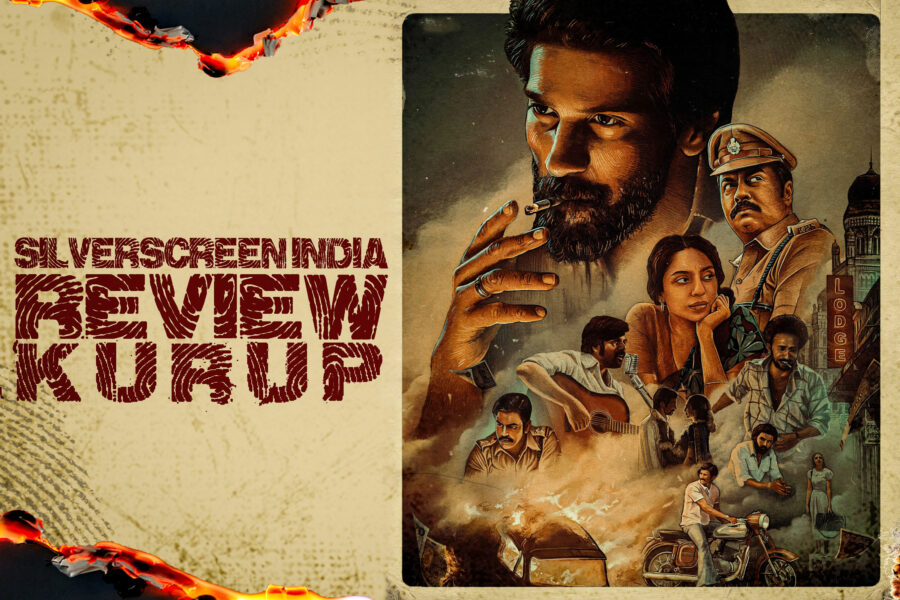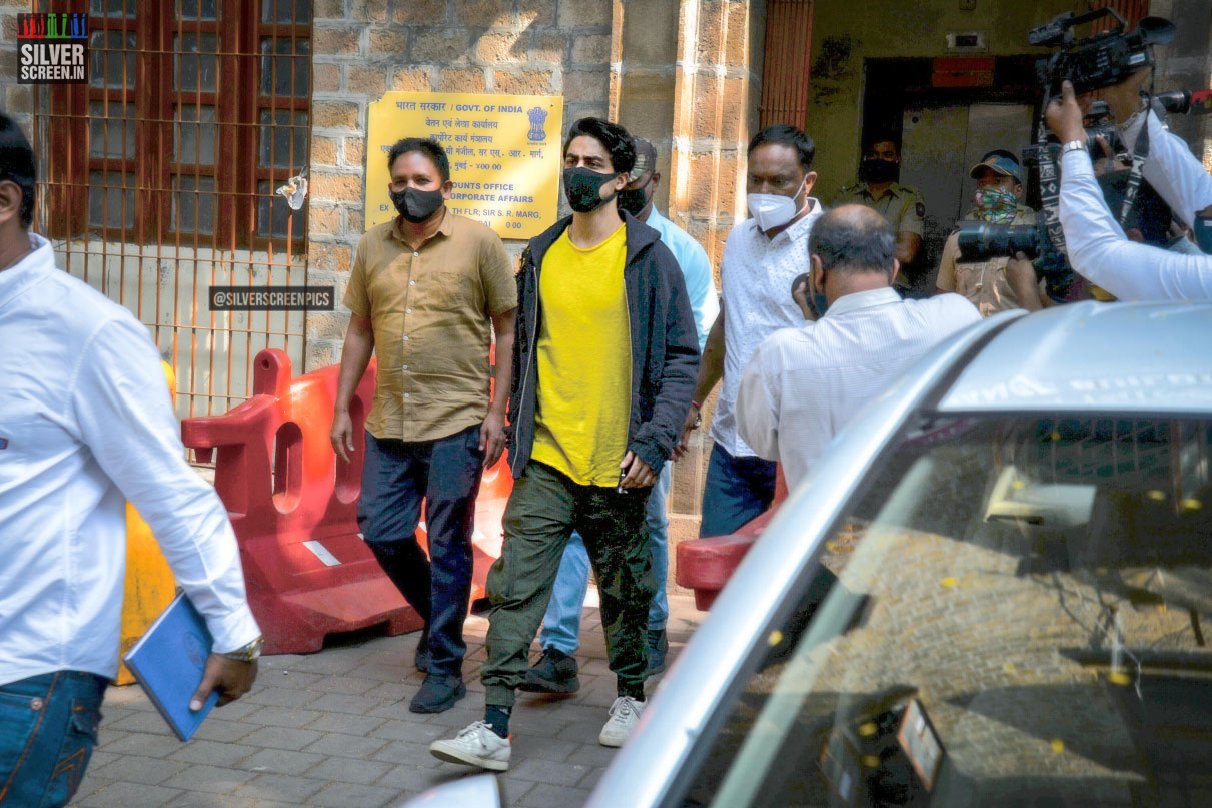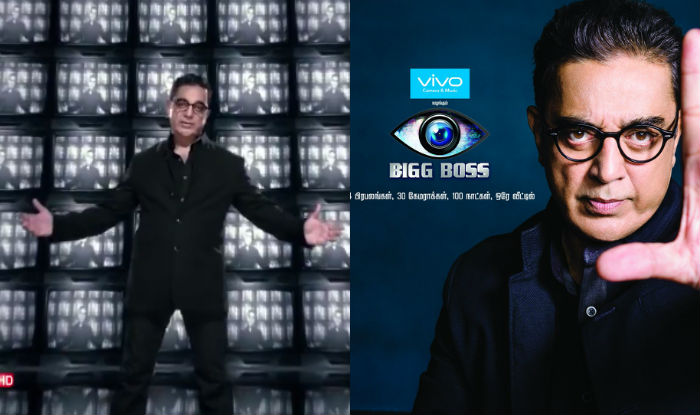Watching Kurup, the latest outing of south Indian star Dulquer Salmaan, in a packed house on the first weekend of its theatrical release can be a strange exercise in getting to know the millennial and younger generation Malayali male, the mightiest section of the movie audience in the state. What draws them to movie halls at a time when the Covid scare continues to hang heavy in the air, what arouses them and unifies them in cinema.
Kurup, directed by Srinath Rajendran, whose debut directorial Second Show (2012) introduced Dulquer, the handsome son of superstar Mammootty, to the big movie world, is the dramatisation of the life of Sukumara Kurup, the infamous Malayali fugitive, who, in 1984, burned to death a young film representative, and faked his own death to evade the police. In NH47 (1984), directed by Baby, the then-popular Malayalam villain TG Ravi portrayed the role of Kurup. In Pinneyum (2016), auteur Adoor Gopalakrishnan reimagined Kurup as a tragic figure who failed at everything he set out to do and succumbed to loneliness.
The latest version presents the fugitive in a vastly different tone. Every aspect of Kurup, from its music (Sushin Shyam) to cinematography (Nimish Ravi) and production design (Vinesh Banglan), is tailor-made to suit the tastes of the younger section of the audience who, familiar with the international visual and production paradigms, demand the same from filmmakers at home. Kurup is shot on anamorphic lenses, lit up in oily warm tones, littered with frame/colour references from readily identifiable film classics that have influenced the movie-watching practice of the younger audience. Cinematography is ornate and appealing, although it does not evoke the sense of mystery and obscurity that the story demands. The background score signifies youthful rebellion and heroism, raising Sukumara Kurup to the status of an iconic anti-hero, like Mohanlal’s Lucifer, who has the intellect and confidence to control the world. Dulquer wears the fanciest clothes that he flaunts in slow-motion/hero shots. One could compile them to make a fashion catalogue.
The fascination with bad boys is a pop-culture condition, best performed in India by filmmakers such as Ram Gopal Varma. While bringing the life and actions of the bad men to the centre stage, Varma informed the audience of their secret inner lives. Throughout Kurup, there is never an attempt to look into the protagonist’s mind and diagnose the root and ways of his sickness. The visual elegance of the film is diagonally opposite to its writing, which follows the design of a Wikipedia page, passively taking the audience from one major incident of Kurup’s life to the next.
The film rushes through the pre-murder phase of Kurup’s life. As a rebellious Airman candidate, he sneaks in and out of the Air Force academy compound to smuggle liquor bottles. In an elaborate scene, he helps a friend (Sunny Wayne) attend an indie music fest where he sings and dances like Ranbir Kapoor in the former half of an Imitiaz Ali movie. He dates the pretty daughter (Shobhita Dhulipala) of his parents’ domestic help.
Kurup is one of those stories where the central figure, who commits the most heinous crime, looks utterly ordinary all his life, like a boy next door who is obsessed with the wardrobe and hairdo of his favourite rockstar. How do you despise a person who looks not outrightly evil but like a sunshine boy? What a filmmaker must do in such a case is dissect the protagonist’s mindscape and look for the signs. In Sreenath Rajendran’s film, there are no signs but lazy, broad strokes.
Post the murder, Krishnadas (Indrajith Sukumaran) a deputy superintendent of police, arrives to investigate the case. He easily beats Kurup in the contest to be the shallowest character in the movie. The cop must be deeply invested in the case because he keeps a diary with floridly titled passages, “Him and Her,” “The Accomplices,”… However, never in the film does he come across as a man with a sense of urgency, someone deeply disturbed by the crime Kurup committed. And then, out of the blue, unsupported by any convincing reason, he declares that the dead man is not Kurup. He does not show any sign of exhaustion when Kurup slips away from him every time. Krishnadas moves like a man who knows it all, unaffected by backlashes and disappointments, immune to anger or fear.
That brings us to the heart of the film, the best performed and staged sequence, where the men conspire and commit the crime. In this part, Kurup, although fleetingly, becomes a movie that is interested not just in the cosmetics of the story but also in its complex interiors. The pivotal scene where a car is set on fire with a man tied to its front seat is brilliantly staged and shot, rightly evoking a sense of eeriness that could haunt the viewer for a long time.
Recommended
Shine Tom Chacko plays Bhasi Pillai, Kurup’s brother-in-law whose behaviour is composed of a lethal combination: greed and imprudence. Shine communicates on screen, in fine detail, the evil residing in Bhasi’s head. His brazenness must shock the viewers; unlike Kurup and his accomplices who suffer from a cultivated social obligation to look like decent men, Bhasi lets his perversion run wild. Shine has done this before, in varying degrees, in films like Ishq (2019) and Annayum Rasoolum (2013), but here, his depiction of a violent villain comes to a glorious high. He is not afraid to look ugly on screen or to bare his soul in front of the camera. When the car is burning, he hops around it, like a child thrilled to see his toy car take off, and when the fire licks his arm and face, it seems like a profound act of justice. This one fine performance and an image for ages partially redeem Kurup of its complacent shallowness.
*****
This Kurup review is a Silverscreen original article. It was not paid for or commissioned by anyone associated with the movie. Silverscreen.in and its writers do not have any commercial relationship with movies that are reviewed on the site.



